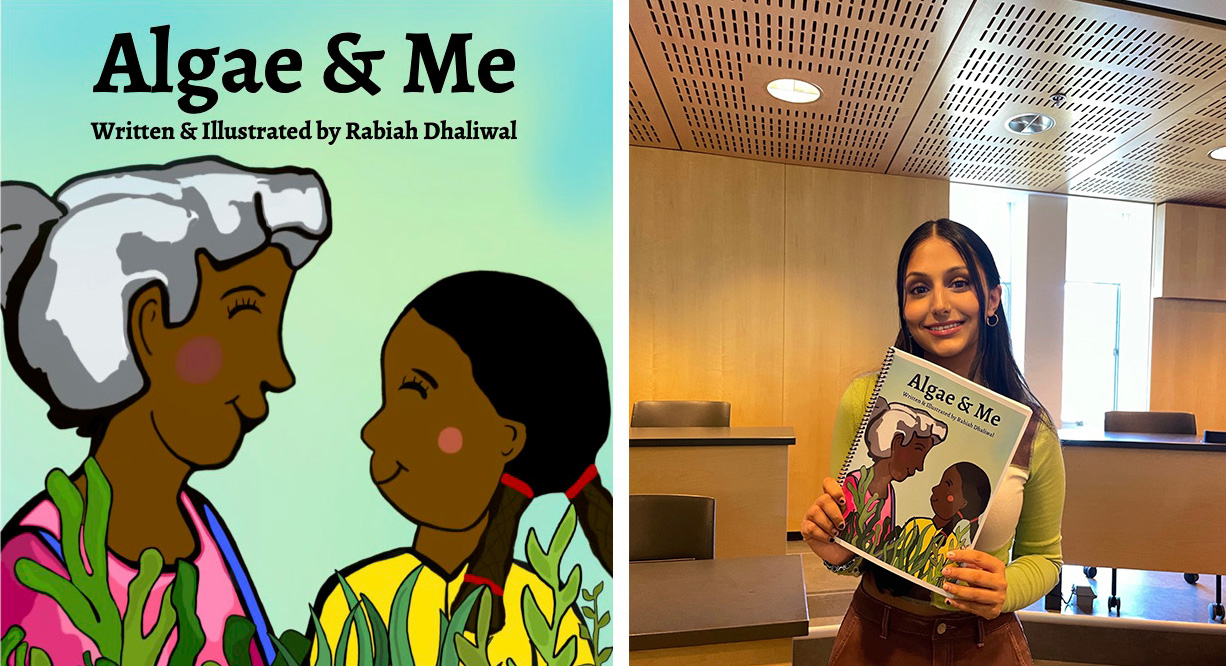UBC student champions disability justice to win Lieutenant Governor's Medal
May 30, 2023

May 30, 2023

You might imagine a former pageant queen’s journey to university to be akin to a catwalk. However, UBC biology student and Miss Canada 2021 second-runner up, Rabiah Dhaliwal, found the transition to be less straightforward at times. Despite the hurdles, Dhaliwal didn’t let that stop her from using the challenges she faced as catalyst for change to help build community for marginalized students.
Today, Dhaliwal’s contributions to equity, diversity and inclusion as a mental health and disability advocate are being recognized. She will be named the recipient of the 2023 B.C. Lieutenant Governor's Medal for Inclusion, Democracy, and Reconciliation at her graduation ceremony.
The Lieutenant Governor's medal program recognizes outstanding students like Dhaliwal, who excel in their studies and demonstrate outstanding contributions in areas like inclusion, democracy and/or reconciliation on campus, or in their communities.
“As a South Asian female, discussions about mental health were stigmatized, marking my first few years at UBC with feelings of isolation and uncertainty,” she says.
It wasn’t until Dhaliwal found a group called UBC Disabilities United Collective (UBC DUC) that she found a sense of community with others who understood her experience. The conversations she had about the struggles for equal access and care in the health system and academia, especially as pandemic restrictions eased, really lit a path of change and action.
“In my final years at UBC, I felt a strong urge to actively contribute and turn my ideas for effecting positive change for marginalized groups into tangible reality,” she says.
As the co-president of UBC DUC for the 2022-2023 term, Dhaliwal led the creation of a mentorship program that matched disabled undergraduate students with disabled professors and graduate students to help build a supportive community. Dhaliwal also led and provided guidance for the creation of two sensory rooms in the AMS Nest, which provides a safe and calming environment for students experiencing sensory overload.
Dhaliwal's impact extends beyond UBC. In 2019, she testified before the House of Commons Standing Committee on Finance, advocating for the Mental Health Parity Act. She also founded and serves as the director of the Voices for Hope Foundation, a non-profit organization focused on mental health empowerment for marginalized groups. Dhaliwal also wrote and illustrated a children's book, Algae and Me, that promotes diversity in science through the adventures of a young girl and her scientist grandmother exploring the wonders of seaweed.
When asked about her motivation, Dhaliwal says it comes from hearing stories of resilience from other youth and witnessing the impact of her work on their lives.
“Although everyone's journey is unique, there is immense power, unity and healing in finding similarities and supporting one another, especially among marginalized groups,” she says.
While she’s honoured and humbled to receive the award, Dhaliwal emphasizes it was truly a collective effort. She acknowledges various people at UBC who have supported her, including the members of UBC DUC, and biology professor Dr. Bridgette Clarkston who encouraged her pursuits in science, art and advocacy.
After graduation, Dhaliwal plans to return to school to pursue a career in health care and research. This summer, she’ll be exploring her interest in pediatric health research as a recipient of the UBC Faculty of Medicine Summer Student Research Program Award. She will also be developing a multi-sensory art exhibition for people with visual impairments and sensory needs.
“Whatever career path I take on, I want to uphold the principles of resilience, compassion and inclusion,” she says. “I wished my time at UBC lasted longer—it has been profoundly meaningful as it has shaped me and taught me so much with its different challenges.”
To incoming or current students, Dhaliwal advises embracing challenges as opportunities for personal growth.
“It's important to learn and grow from every experience, build meaningful relationships and have the courage to ask for help when needed," she says. "You'll be surprised by the number of supportive people who are eager to uplift you on your journey."
We honour xwməθkwəy̓ əm (Musqueam) on whose ancestral, unceded territory UBC Vancouver is situated. UBC Science is committed to building meaningful relationships with Indigenous peoples so we can advance Reconciliation and ensure traditional ways of knowing enrich our teaching and research.
Learn more: Musqueam First Nation